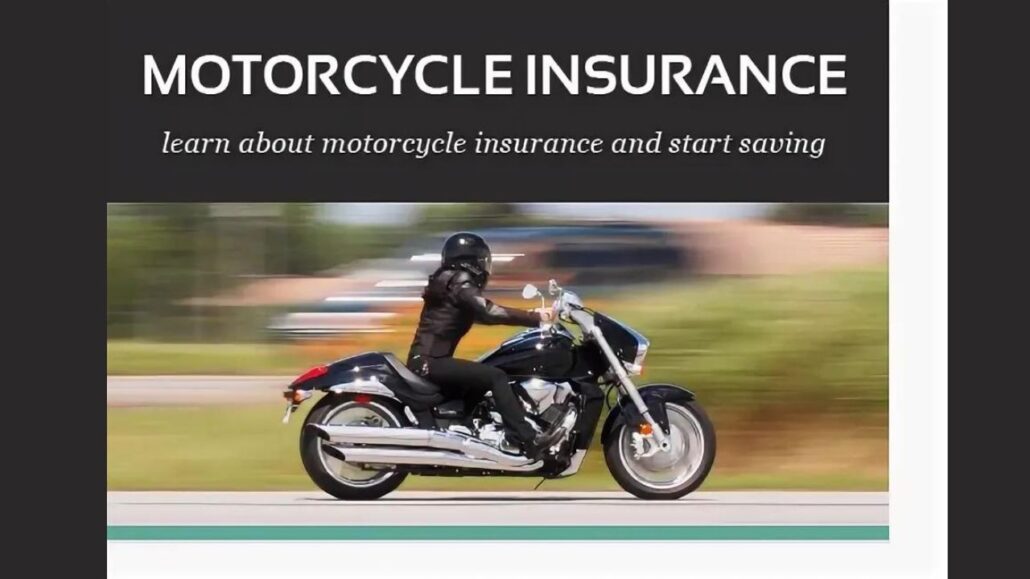Do you have to have motorcycle insurance in Washington providing financial protection for riders Failure to comply can result in legal penalties and personal liability for damages. While certain vehicles are exempt, responsible ownership is crucial, ensuring coverage for unforeseen accidents.
Importance of Motorcycle Insurance
Before we dive into the legalities of motorcycle insurance in Washington, let’s first understand what it entails. Motorcycle insurance provides financial protection in the event of accidents, theft, or damage to your bike.
Like car insurance, motorcycle insurance offers various coverage options, including liability, collision, comprehensive, and uninsured/underinsured motorist coverage.
The cost of motorcycle insurance can vary depending on factors such as the rider’s age, driving record, the type of motorcycle, and the coverage options chosen. Riders can customize their policies to suit their needs and budget.
Coverage Options
When it comes to motorcycle insurance, riders have various coverage options to choose from. These options typically include liability coverage, which covers bodily injury and property damage, as well as collision coverage,
Comprehensive coverage, and uninsured/underinsured motorist coverage. Each option offers different levels of protection, allowing riders to tailor their insurance to their specific needs.
Factors Affecting Premiums
Several factors influence motorcycle insurance premiums. These include the rider’s age, driving history, type of motorcycle, and coverage options chosen. Additionally, factors like location, frequency of use, and storage conditions can impact premium rates.
These variables helps riders make informed decisions when purchasing motorcycle insurance.
Washington State Motorcycle Insurance Requirements
In Washington State, motorcycle insurance is mandatory. The state requires riders to have a minimum level of liability coverage to legally operate their motorcycles on public roads. The minimum liability coverage includes:
- $25,000 bodily injury coverage per person
- $50,000 bodily injury coverage per accident
- $10,000 property damage coverage per accident
While these are the minimum requirements, riders can opt for higher coverage limits or additional coverage options for enhanced protection.
Minimum Liability Coverage
Minimum liability coverage is a fundamental aspect of insurance, offering essential financial protection for policyholders. In the event of an accident, this coverage helps pay for damages to other people’s property and medical expenses.
While specific requirements vary by state, understanding and maintaining adequate liability coverage is crucial for responsible ownership and legal compliance.
Additional Coverage Options
Additional coverage options for motorcycle insurance extend beyond liability to protect riders comprehensively. These options may include collision coverage,
Which pays for damages to your motorcycle in the event of a collision, and comprehensive coverage, which covers theft, vandalism, and other non-collision incidents. Choosing these options enhances your financial security on the road.
Penalties for Non-Compliance
Failure to maintain mandatory motorcycle insurance in Washington can have severe consequences. Riding without insurance not only puts you at risk but also endangers other motorists on the road. If caught riding uninsured, you could face legal penalties, including fines, license suspension, and even vehicle impoundment.
Moreover, in the event of an accident, being uninsured can lead to significant financial liabilities. You could be held personally responsible for covering medical expenses, property damage, and legal fees out of pocket.
Legal Consequences of Riding Uninsured
Riding uninsured poses significant legal risks. In many jurisdictions, operating a vehicle without insurance coverage is against the law. Consequences may include fines, license suspension, vehicle impoundment, and personal liability for damages.
Responsible riders prioritize insurance to comply with the law and protect themselves from potential legal repercussions.
Financial Repercussions
Financial repercussions of riding uninsured in Washington can be severe. In addition to potential legal fines, riders may face significant out-of-pocket expenses for damages and medical bills in the event of an accident.
Importance of Motorcycle Insurance Beyond Legal Requirements

While meeting the state’s minimum insurance requirements is essential for legal compliance, motorcycle insurance offers benefits beyond fulfilling legal obligations. It serves as a safety net, providing financial protection against unforeseen circumstances such as accidents, theft, vandalism, or natural disasters.
Having adequate insurance coverage gives riders peace of mind, knowing that they’re financially protected in case of any mishap on the road.
Whether it’s repairing or replacing a damaged bike, covering medical expenses, or legal fees, motorcycle insurance can help mitigate financial burdens during challenging times.
Protection Against Unforeseen Circumstances
Insurance is the cornerstone of protection against unforeseen circumstances. Whether it’s a sudden accident, theft, or natural disaster, insurance coverage provides financial security and peace of mind. It acts as a safety net, helping individuals and businesses navigate unexpected challenges without facing significant financial strain.
Peace of Mind for Riders
Riders cherish peace of mind, an invaluable asset while navigating roads. Motorcycle insurance grants this assurance, shielding against unforeseen mishaps.
With coverage tailored to individual needs, riders can venture forth with confidence, knowing they’re safeguarded against potential risks. Peace of mind on two wheels is priceless, courtesy of comprehensive insurance protection.
Shopping for Motorcycle Insurance in Washington
When shopping for motorcycle insurance in Washington, it’s crucial to compare quotes from multiple insurers to find the best coverage at competitive rates. When choosing an insurance provider, consider factors such as coverage limits, deductibles, discounts, and customer service reputation.
Additionally, assess your specific needs and risks as a rider to determine the most appropriate coverage options for your situation. Whether you’re a seasoned rider or a novice, having the right insurance coverage can make all the difference in protecting yourself and your motorcycle.
Comparing Quotes
When comparing insurance quotes, consider coverage options, deductibles, and premiums. Evaluate each policy’s benefits and limitations to find the best fit for your needs. Remember, the cheapest option may need to provide adequate coverage. Take time to compare quotes thoroughly before deciding to ensure you’re properly protected.
Finding the Right Coverage for your Needs
Finding the right coverage for your needs is crucial when securing insurance. By evaluating your specific requirements and risks, you can tailor your policy to provide adequate protection. Consider factors such as coverage options, deductibles, and premiums to ensure you have the necessary financial security in the event of unexpected incidents.
Washington State’s Mandatory Motorcycle Insurance Law

Washington State’s mandatory motorcycle insurance law requires riders to have minimum liability coverage. This ensures financial protection for both riders and other road users.
Failure to comply can lead to legal consequences, including fines and license suspension. Despite exemptions for specific vehicles, responsible ownership is paramount.
Having adequate insurance coverage provides peace of mind and safeguards against unexpected accidents. Riders should prioritize understanding their insurance needs and selecting suitable policies to comply with state regulations and protect themselves on the road.
Exceptions to the Law
The law exempted the following registered vehicles:
- Motor scooters and mopeds
- Specially licensed horseless carriage vehicles over 40 years old
- State or publicly-owned vehicles
- Common or contract carriers with the Washington Utilities and Transportation Commission
It’s important to note that even though insurance isn’t mandatory for these listed vehicles, you could still be held liable for any damages or injuries resulting from your negligent use of them. If your vehicle type isn’t included above, you can contact the Department of Licensing for clarification at For more information, you can visit:
- How to get your endorsement or permit for motorcycles (2-wheel) at
- Department of Licensing at.
- Personal injury protection (PIP)
If you need further assistance, feel free to:
- Call us at 800-562-6900, from 8 a.m. to 5 p.m., Monday to Friday.
- Engage in a live chat with us.
- Contact us to ask an insurance question.
Showing Proof of Insurance
When it comes to owning and operating a vehicle, showing proof of insurance is a fundamental requirement. Whether you’re driving a car, motorcycle, or any other motorized vehicle, having valid insurance coverage is not just advisable; it’s often legally mandated.
Proof of insurance serves as verification that you’re financially responsible in case of accidents or damages involving your vehicle. It typically includes details such as the insurance company’s name, policy number, coverage dates, and the type of coverage you have.
Whether you’re getting pulled over by law enforcement or registering your vehicle, having proof of insurance readily available is essential. It ensures compliance with legal regulations and provides peace of mind for both drivers and authorities.
Insurance for Different Types of Bikes
The type of motorcycle being insured can also impact insurance coverage and rates. Sport bikes, cruisers, touring bikes, and scooters may have different insurance requirements and premiums. Riders should discuss their specific needs with insurance providers to ensure they have appropriate coverage.
Conclusion
Motorcycle insurance is not just a legal requirement in Washington State; it’s a vital tool for protecting yourself and your assets on the road. By understanding the insurance requirements, exploring coverage options, and choosing the right policy for your needs, you can ride with confidence, knowing that you’re adequately protected against life’s uncertainties.
FAQ
Do Motorcycles Need Insurance in Washington?
In Washington, is motorcycle insurance mandatory? Absolutely, and it’s imperative to present proof of insurance before registering your motorcycle. Riding without insurance can lead to consequences ranging from fines to license suspension.
Is Motorcycle Insurance Mandatory in the USA?
Virtually every state mandates motorcyclists to possess a certain level of insurance for their bikes. Some states also permit alternatives, such as submitting a certificate of financial responsibility indicating assets meeting or exceeding the minimum coverage requirements.
How much is Motorcycle Insurance in Washington State?
The cheapest motorcycle insurance in Washington is from Dairyland, which offers coverage for a monthly cost of $16. That makes Dairyland 44% cheaper than the average company in Washington. The average cost of motorcycle insurance in Washington is $29 per mont.
What are the Motorcycle Laws in Washington State?
Riders are required to don a DOT-approved helmet that is in proper condition, along with eye protection. Motorcycles must be equipped with both a passenger seat and footrests to accommodate passengers. Riders who are under 18 years old must complete a motorcycle education course. Additionally, passengers must not be below the age of
What Makes a Motorcycle Street Legal in Washington?
You’ll need an Off-Road Vehicle (ORV) decal and a motorcycle license plate to ride on public roads. (The law requires modified off-road motorcycles to meet both ORV and on-road use requirements.



